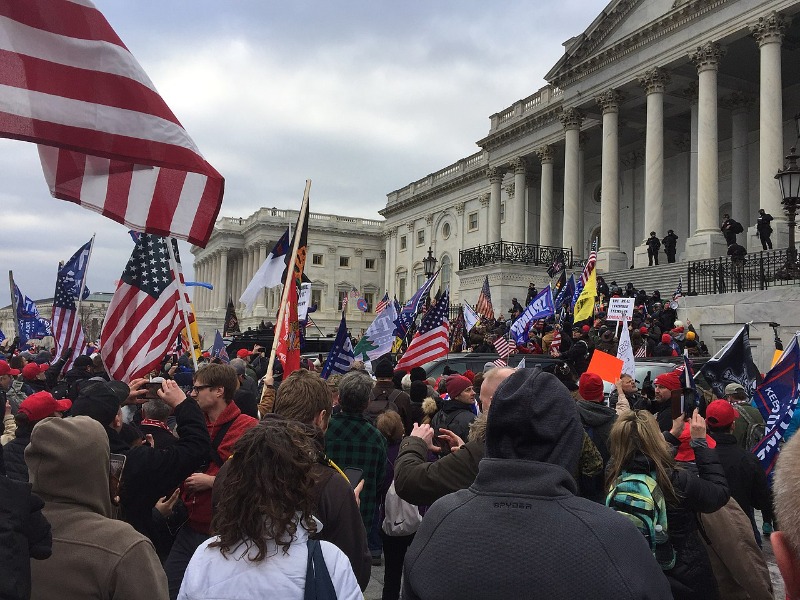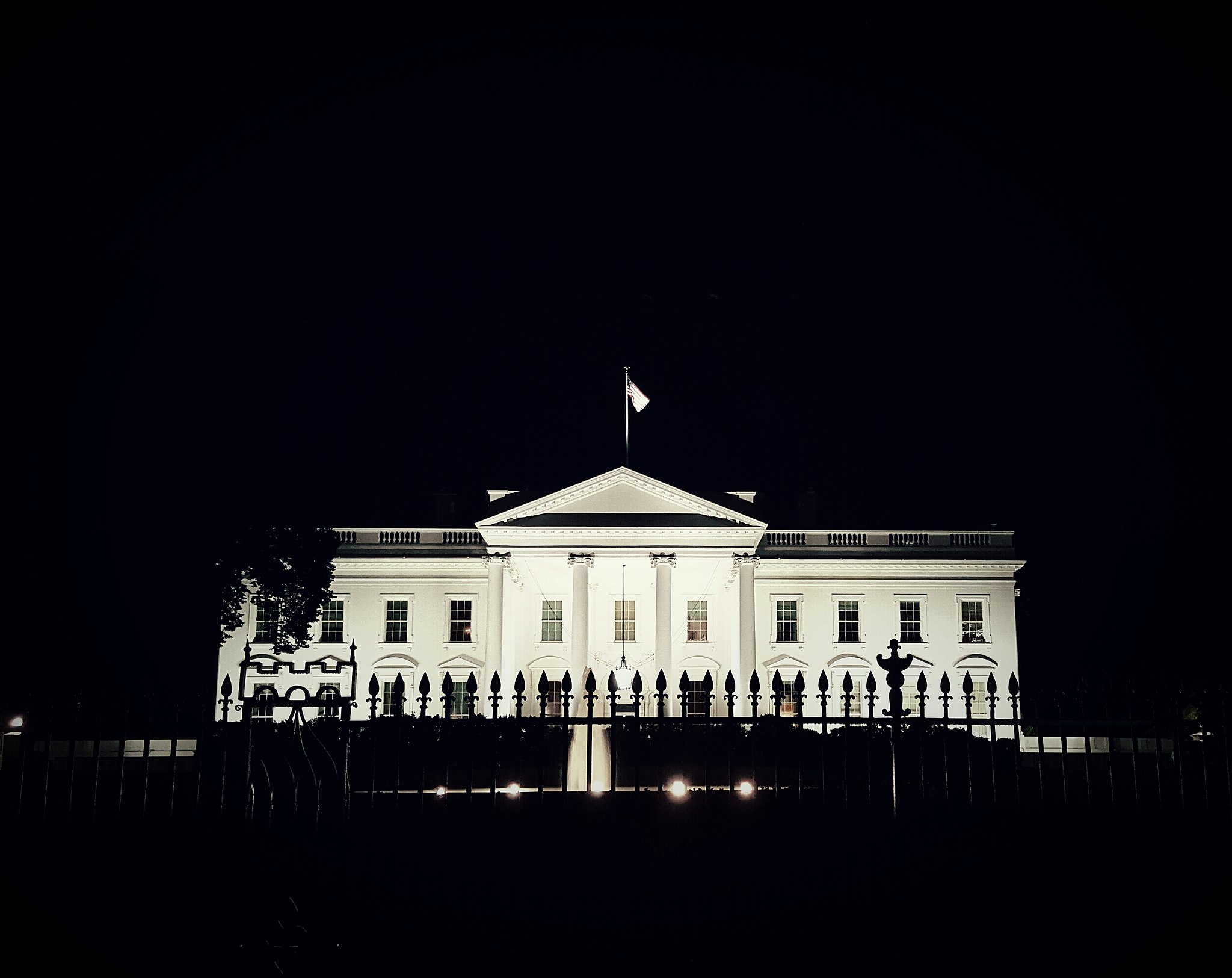Foreign Investment, China, and Trump
Should Chinese state-owned enterprises (SOE) be free to take control of U.S. companies or companies that otherwise affect the United States’s national security interests? That’s one of the questions tackled in November by the U.S.-China Economic and Security Review Commission (USCC), and one that is regularly faced by the Committee on Foreign Investment in the United States (CFIUS).
Published by The Lawfare Institute
in Cooperation With

Should Chinese state-owned enterprises (SOE) be free to take control of U.S. companies or companies that otherwise affect the United States’s national security interests? That’s one of the questions tackled in November by the U.S.-China Economic and Security Review Commission (USCC), and one that is regularly faced by the Committee on Foreign Investment in the United States (CFIUS). Based on rumblings from Donald Trump’s transition team and the President-elect’s statements during and after the campaign, this issue also seems sure to come up during the first few months of the Trump presidency.
The USCC Report
On November 16, the USCC released its mammoth, 553-page annual report to Congress detailing ongoing national security implications of the U.S.-China relationship. The report—a major component of the USCC’s congressional mandate to monitor security concerns in the relationship between the world’s two largest economies—contained twenty recommendations for congressional action.
While the report has so far received relatively little fanfare, one recommendation caught the attention of some: that “Congress amend the statute authorizing the Committee on Foreign Investment in the United States to bar Chinese state-owned enterprises from acquiring or otherwise gaining effective control of U.S. companies.” Although the recommendation is purely advisory, if acted upon by Congress, it would effect an across-the-board ban on any purchases of U.S. companies that resulted in Chinese SOE control—with “control” defined broadly as the ownership of a majority or dominant minority of a company’s voting interest that would allow the Chinese SOE to direct important matters of that company.
As explained in the report’s chapter on Chinese SOEs, the USCC’s recommendation stems from its belief that there is a high risk that SOEs, if allowed to gain control over U.S. companies, will use any “technology, intelligence, and market power” they obtain “in the service of the Chinese state to the detriment of U.S. national security.” This ominous outlook wasn’t shared by all thirteen of the USSC’s members, however—a lone skeptic, Commissioner Robin Cleveland, penned a brief but biting dissent. She argued that the recommendation was made with “no reference to witness testimony, external reports, or explanatory data,” and that much of the report as a whole “reflects the personal judgments and interests of Commissioners unsupported by testimony or fact.”
Chinese Foreign Ministry spokesman Geng Shuang was quick to respond to the report, stating that it “again revealed the commission’s stereotypes and prejudices.”
CFIUS
If adopted, the USCC’s recommendation would directly affect the work of CFIUS, an interagency committee responsible for reviewing transactions that could result in control of a U.S. business by a foreign person. The purpose of CFIUS review is to evaluate whether a transaction would have any effect on the national security of the United States. As a result, the Committee looks to a broad range of factors, including whether the company owns or operates critical infrastructure, owns property near U.S. government facilities, or affects the national transportation system, before deciding whether to approve a transaction. (In recent years, CFIUS has begun to weigh in on overseas deals as well, objecting on two occasions to a Chinese acquisition of a European company on the grounds that the takeover would raise national security concerns within the United States.)
CFIUS is no stranger to reviewing Chinese purchases of U.S. companies. Although the available data from the Commission doesn’t distinguish between Chinese SOEs and other Chinese entities, records show that between 2012 and 2014, CFIUS reviewed sixty-eight transactions involving Chinese purchasers—more than the combined total of reviewed transactions involving Germany, France and the Netherlands. And one of the more high-profile events in recent CFIUS history involved China: in 2012, CFIUS recommended blocking a proposal that would have allowed two Chinese nationals to develop wind farms in Oregon. The decision went to President Obama, who concurred with CFIUS’s recommendation. That marked the first time since 2006 that the President had been forced to step in and make an executive decision on whether a transaction should go through. (The Chinese later sued, and after much litigation, the parties eventually settled in 2015.) At the beginning of this month, President Obama stepped in for a second time to block an overseas deal between a Chinese investment fund and German tech company Aixtron.
One factor likely contributing to the difficulty of reviewing Chinese transactions is that the Chinese government holds a minority stake in many of the country’s so-called private companies. This stake allows the government to retain significant sway over the companies’ operations—blurring the line between Chinese SOEs and private companies.
Even before the USCC’s report, there had been increased CFIUS activity around Chinese purchases, particularly those involving SOEs. But the Committee has not yet adopted anything like the USCC’s recommendation to block all transactions involving Chinese SOEs. Indeed, in August of this year, CFIUS signed off on the largest overseas purchase by a Chinese SOE to date: the $43 billion takeover of Syngenta, a Swiss company, by state-owned ChemChina.
While it’s not completely clear what an amendment like that proposed by the USCC would look like, it appears that it would require CFIUS to skip its traditional review process, and would instead instruct CFIUS to preemptively ban any deals whereby a Chinese SOE would gain control of a U.S. company. It remains to be seen whether the amendment would also direct CFIUS to block transactions involving two non-U.S. parties, like the ChemChina-Syngenta deal.
What Will the Trump Administration Do?
President-elect Donald Trump’s rhetoric from the campaign trail suggests that he may take a harder line against China on trade-related matters than the Obama administration. (For post-election discussions of what a President Trump means for the U.S.-China relationship, see here and here.) Trump has maintained his tough-on-China stance post-election, attacking the country in a series of tweets and participating in a phone call with Taiwan’s president. According to scattered reports, the Trump transition team is also weighing an enhanced role for CFIUS geared toward ensuring reciprocity in investment opportunities abroad.
So it’s not inconceivable that Trump could support the USCC’s recommendation, and perhaps lobby the Republican-controlled Congress to pass legislation adopting it. Even if he doesn’t go that far, his anti-China views may influence how rigorously CFIUS reviews Chinese deals—after all, the Committee will be run by prominent members of the Trump administration. (Seated on CFIUS are, among others, the heads of the Treasury, Justice, and State Departments.)
Trump could find himself with a sympathetic Congress if he decides to augment CFIUS’s role, as there appears to be some level of bipartisan support for more rigorous review of Chinese deals. In September, sixteen members of Congress (both Republican and Democrat) sent a letter to the U.S. Government Accountability Office, requesting a review of CFIUS operations to determine whether the Committee had “effectively kept pace with the growing scope of foreign acquisitions in strategically important sectors in the U.S.” The letter specifically pointed to Chinese and Russian deals as areas of concern. Just two weeks ago, Democratic Senator Chuck Schumer wrote the Treasury Secretary and the U.S. Trade Representative urging closer review of Chinese acquisitions in the United States.
Still, for now, probably the only thing to do is watch out for news from Trump Tower. The stance of his cabinet toward China and free trade, as well as the President-elect’s own statements about his trade plans, may provide a clue as to what his administration will do come January 20th.





